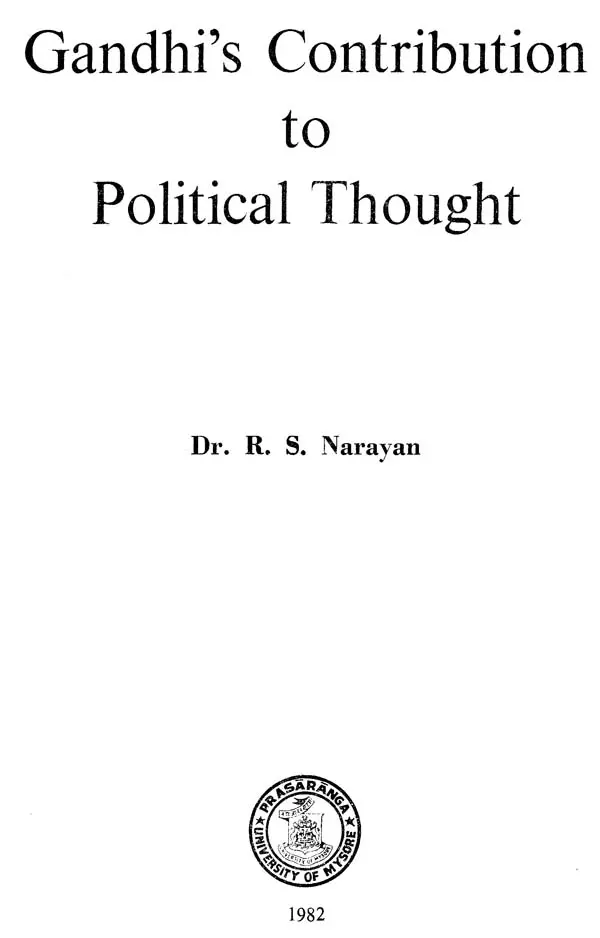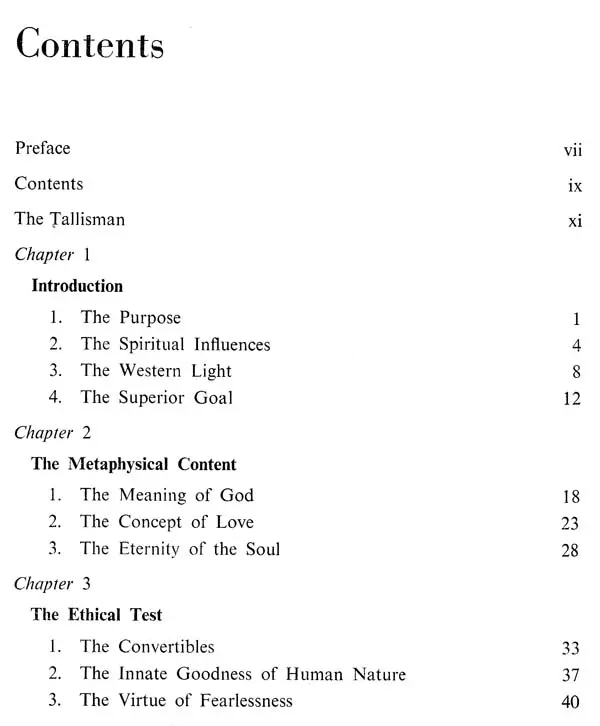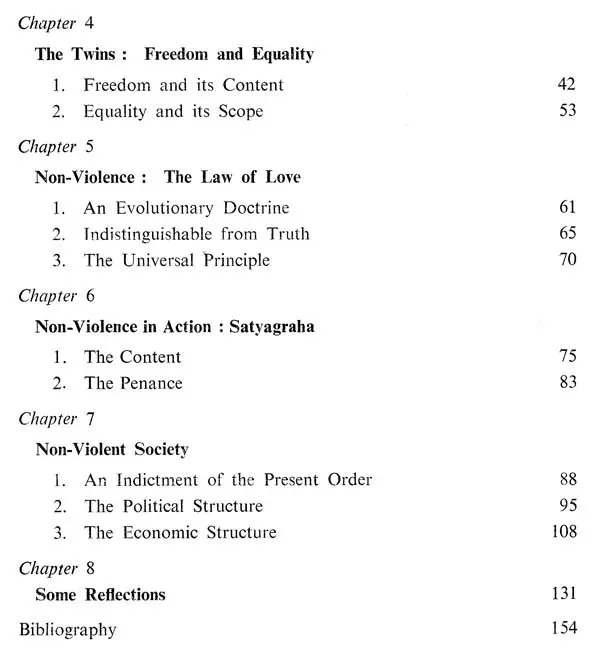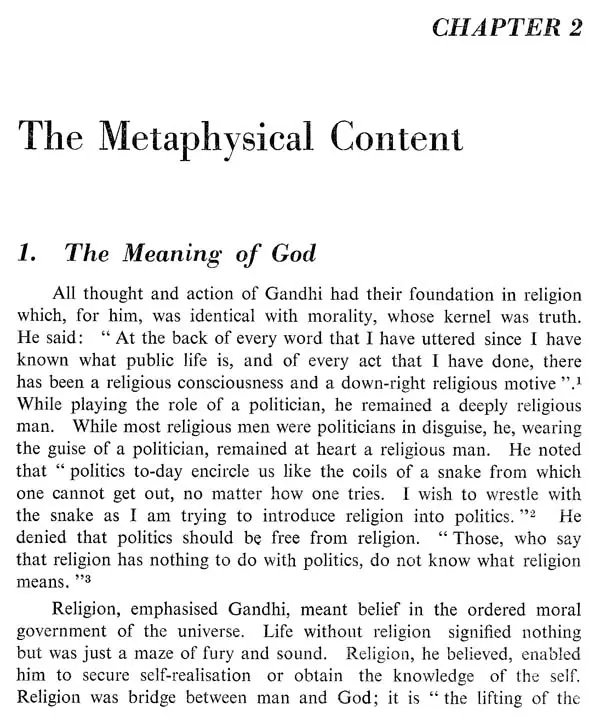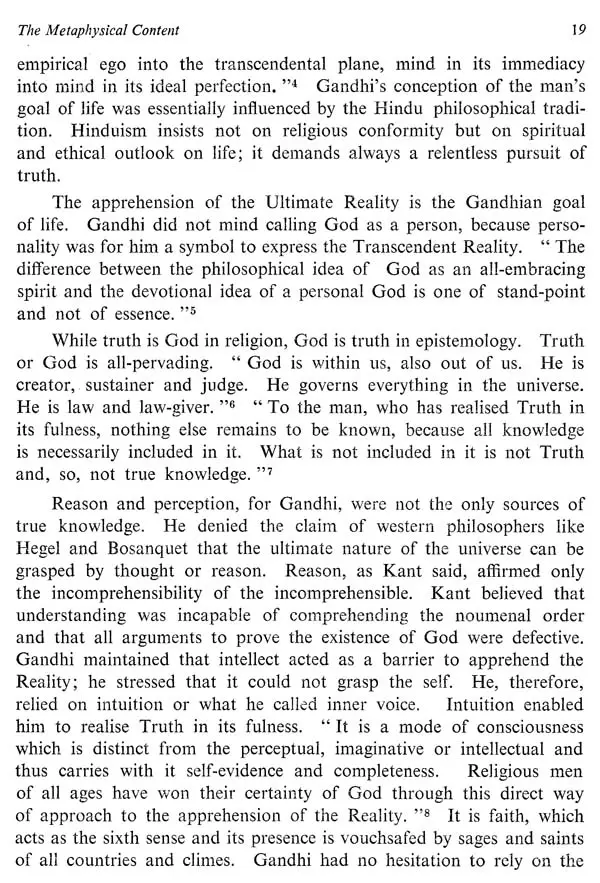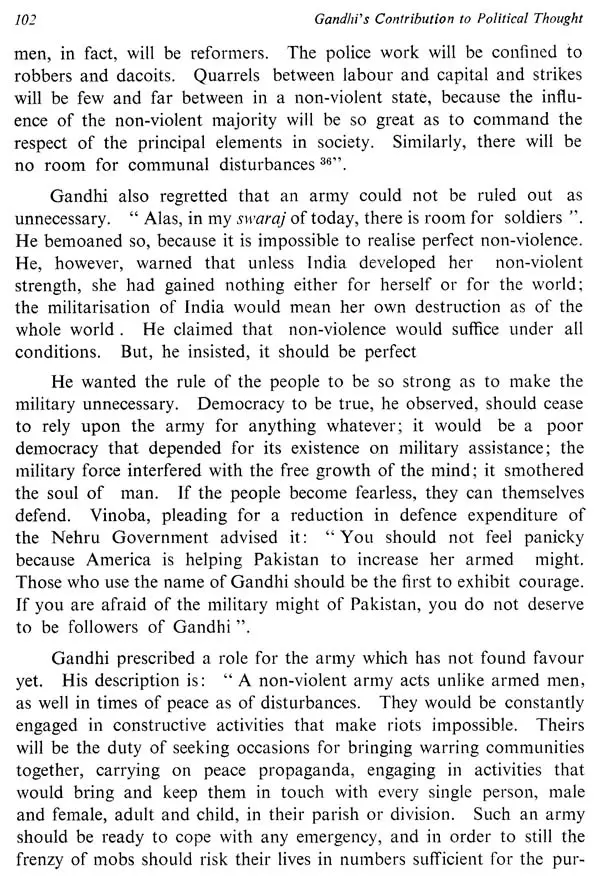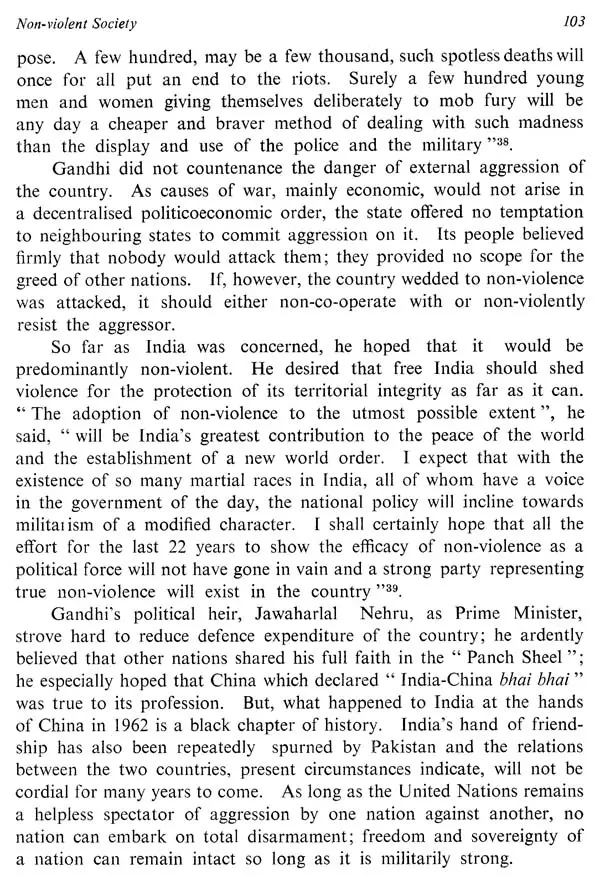
Gandhi's Contribution to Political Thought (An Old and Rare Book)
Book Specification
| Item Code: | UAK073 |
| Author: | R. S. Narayan |
| Publisher: | University of Mysore, Mysore |
| Language: | English |
| Edition: | 1982 |
| Pages: | 161 |
| Cover: | PAPERBACK |
| Other Details | 10.00 X 7.50 inch |
| Weight | 290 gm |
Book Description
Over a decade ago, I presented a Thesis on "Gandhi's Contribution to Political Thought" for the degree of Doctor of Philosophy of the University of Mysore. Gandhi did not produce a treatise embodying his considered political thought, but one can gather it from his prolific writings and recorded speeches. What he wrote and spoke, founded on his experiments with truth and non-violence, constitute his carnest plea to humanity to tread firmly the path of love. While the Gandhian movement in India aimed at political freedom of the country, it remained intensely spiritual. Its ultimate aim wast to secure the absolute freedom for the individual. While Gandhi was outwardly a politician per excellence, he was inwardly completely spiritual. In his innermost self Gandhi remained ". as observed by Arnold Toynbee, "aloof from politics, even when his outer self was the most actively engaged in them" His spiritual outlook set no premium on the ends justifying the means. He demanded the purity of the means at any cost. He was sure that the purity of the means would itself ensure the realisation of the end. The realisation of the end, according to him, was commen surate with the degree of the purity of the means. Gandhi stood for the welfare of all. The concept of Sarvodaya. which he propounded, is superior to the Benthamite doctrine of the greatest good of the greatest number; he wanted the greatest good of all. It is possible only if man gives up exploitation of man. Enjoining the people to build a non-exploitative society, he stressed that it should be free from these seven ills: politics without principles; wealth without work; pleasure without conscience; knowledge without character; commerce without morals; science without humanity; and worship without sacrifice.
**Contents and Sample Pages**
